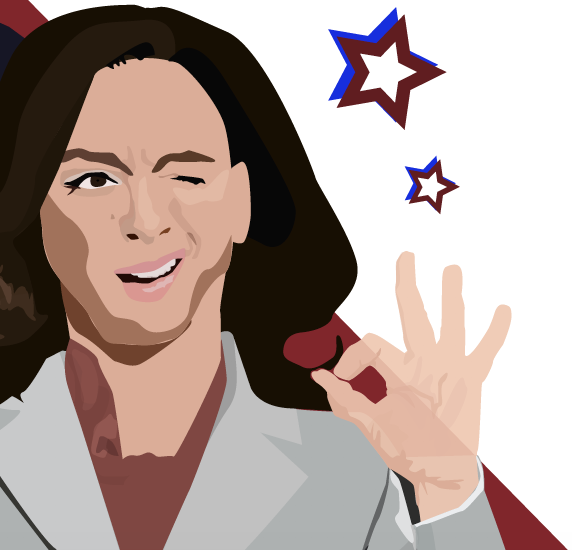Just the fourth-ever episode of the NBC late-night comedy show “Saturday Night Live” featured a parody skit of the 1976 presidential debate between sitting Republican President Gerald Ford and Democratic nominee Jimmy Carter. Now a critically-acclaimed segment, these witty presidential debate parodies became fan-favorites, satirically mimicking famous politicians in every election season since.
“S.N.L.” has given a platform to many famous comedians, allowing them to walk onto the screen and into the shoes of our nation’s most critiqued politicians. Some hilarious impressions of the past include Tina Fey as Sarah Palin, Jim Carrey as Joe Biden, Maya Rudolph as Kamala Harris and Will Ferrell as George W. Bush.
After 46 seasons, ‘Saturday Night Live’s’ political skits are still as popular as ever. The television show’s parody of the first 2020 presidential debate received over 25 million views in its first two weeks on YouTube.
In recent years, there has been a lot of debate over whether “S.N.L.” impressions of politicians have any impact on presidential campaigns and elections. Could a late-night variety show really influence the way that people vote or how we view our politicians?
The Fordham Political Review, a journal from Fordham University’s top political experts, established what is called the “‘S.N.L.’ effect,” asserting that “‘S.N.L.’ creates lasting legacies through its mockery.”
In fact, according to NBC News, impersonations of candidate Al Gore during his run against Bush in 2000 amplified his “uncooperative, know-it-all persona” so much that Gore’s national poll numbers “deteriorated shortly after the skit’s broadcast.”
The Fordham Political Review also notes that comedy is an important place for many people to solidify their views of the candidates in an election. Comedy provides an entertaining critique of a candidate’s actions and emphasizes their behavior in a way that’s memorable and easily understood by the average American.
Through “S.N.L.” sketches and impressions, the comedians cement the general public’s perceptions of political figures. The satirical show takes jabs at candidates of all political affiliations, both Democrat and Republican.
One particularly influential election season was in 2008, with Tina Fey’s impression of Republican Gov. Sarah Palin of Alaska. Fey’s impression was widely discussed across many primetime news stations and deemed as one of the most iconic in “S.N.L.” history, particularly because of her use of the GOP nominee’s real-life statements verbatim for comic effect.
The Chicago Tribune reported on multiple nonpartisan group research studies throughout the 2008 election. One study found that 66 percent of active voters recalled viewing “S.N.L.” skits that year. According to the Tribune, around 12 percent of independent voters claimed that the sketches made Palin look less favorable in their eyes.
Even politicians know just how important the show’s impressions of them are. “S.N.L.” is famous for its celebrity guest hosts every week, and in the 2016 election year, this included appearances from both presidential candidates at the time Hillary Clinton and Donald Trump. Each candidate used the show as a platform to reach audiences and partake in comedic jabs against one another.
Just because the skits are popular does not mean they’re received warmly by the politicians themselves.
Despite appearing on “S.N.L.” in 2016, Trump was clearly disappointed in the show’s impersonation of him, tweeting out, “Alec Baldwin portrayal stinks.” He added, “Saturday Night Live is the worst of NBC. Not funny, cast is terrible, always a complete hit job. Really bad television!”
It’s impossible to predict how much of a direct impact “S.N.L.” has on elections with so many outside factors, but one thing is for certain: Many of the show’s impersonations have left lasting impressions of candidates and on voters, keeping us laughing all the way to Election Day.
One final thought: “80 million people watched the debate, 130 million people will vote, 50 million others are still looking for places to get their news, and comedy can fill that gap,” said Dean Obeidallah, an eight-year member of “S.N.L.’s” production staff, in a 2016 interview with Politico. “Maybe it’s going to take comedians to do the job that cable news has relinquished.”
Featured graphic by Julia Sanbe.







